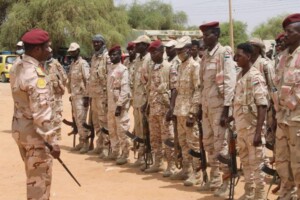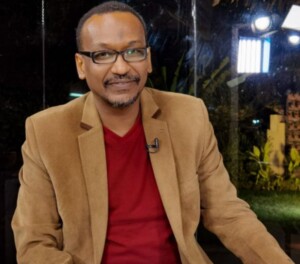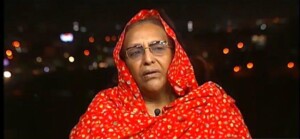Sudan military seizes power, detains PM, Ministers in dawn coup
The head of Sudan’s Transitional Sovereignty Council, Lt Gen Abdelfattah El Burhan, has declared a State of Emergency in the country after the military seized power in a dawn coup in Khartoum today. Minister Abdallah Hamdok, as well as several civilian members of the Sovereignty Council have been placed under arrest and all organs of civilian government have been suspended.
 Barricades burn as people take to the streets of Khartoum today to protest the military coup (Social media)
Barricades burn as people take to the streets of Khartoum today to protest the military coup (Social media)
The head of Sudan’s Transitional Sovereignty Council, Lt Gen Abdelfattah El Burhan, has declared a State of Emergency in the country after the military seized power in a dawn coup in Khartoum today. Minister Abdallah Hamdok, as well as several civilian members of the Sovereignty Council have been placed under arrest and all organs of civilian government have been suspended.
Reports from the Sudanese capital say that the situation is tense as thousands of people answered calls by the Sudanese Professionals Association and the Forces for Freedom and Change (FFC) – the main drivers of the revolution that overthrew the 30-year Al Bashir dictatorship in 2019 – to take to the streets in a mass campaign of civil disobedience and block all roads with barricades, observe a general strike, and “deny any cooperation with the coup.”
The Ministry of Information confirmed this morning that members of the civilian component of the Transitional Sovereignty Council as well as number of ministers of the transitional government were detained. The ministry added via social media that the joint military forces were holding Prime Minister Hamdok under house arrest, and pressurising him to issue a statement in support of the coup, however PM Hamdok refused and called on the Sudanese people to resist the coup attempt peacefully and "defend their revolution". Later reports indicate that when the Prime Minister refused to endorse the coup, he was detained and moved to an unknown location.

Internet blackout
Initially, there were reports of a complete internet blackout following the coup, however some services are now coming back online. Mobile phone users could only receive calls, but no calls could be made. The Ministry of Information also said that military forces have stormed the radio and TV centre in Omdurman, and detained a number of workers.
Foreign Minister Maryam El Sadig El Mahdi reacted defiantly, and said that “any coup in the country is rejected”, and “we will resist it by all civil means”. She also condemned the arrest of PM Hamdok as “very dangerous and unacceptable”.
The Sudan Doctors Syndicate announced a general strike in hospitals except for emergency cases. The union decided to withdraw from military hospitals, and demanded the professional sectors to take to the street. The Sudanese Bankers Association said that the sector’s employees have gone on strike and joined open civil disobedience to protest the arrests.
International reaction
In a statement via social media, the US special envoy for the Horn of Africa, Jeffrey Feltman, said that the USA expressed its “grave concern” about reports that the army has taken control of power in Sudan. “The United States is deeply concerned about reports of the military’s control of the transitional government,” noting that this “contradicts the Constitutional Declaration (which sets the framework for the transition process) and the aspirations of the Sudanese people. for democracy.” From Washington, US Senator Chris Cohn, chairman of the Senate Committee that funds foreign aid, said US aid to Sudan would stop if PM Hamdok and the full transitional government were not restored.
The new media spokesman for the European Union in the Middle East and North Africa, Luis Miguel Bueno said in a statement: “We are very concerned about what is happening in Sudan. We call on all parties and our regional partners to return the transitional process to the right track.”
Public anger
A state of anger prevailed in Khartoum, as demonstrators barricaded streets. Joint forces from the army and the Rapid Support Forces deployed in the strategic and vital areas of the capital. They closed the bridges that connect the three cities of the capital (Khartoum, Omdurman, and Bahri), as well as all routes leading to the capital. Columns of smoke rose from different streets and areas in the cities of Khartoum and Khartoum North. Media sources spoke of military reinforcements in the vicinity of Khartoum International Airport, and some media outlets reported that the airport was closed.
Today’s developments follow weeks of unrest as a result of simmering disunity between the several components of the transitional government, which PM Hamdok described as “the worst and most dangerous crisis, that threatens the transition, and even threatens the entire country.” A failed coup attempt on 21 September revealed simmering differences between the military and civilian components of government. On Thursday, hundreds of thousands of people across Sudan took to the streets in the Marches of the Millions in support of a peaceful democratic transition and to call for civilian rule. Protesters were injured, some severely, as security forces used teargas and bullets to disperse protests.
Radio Dabanga is monitoring the situation closely and will post updates as events unfold.











 and then
and then